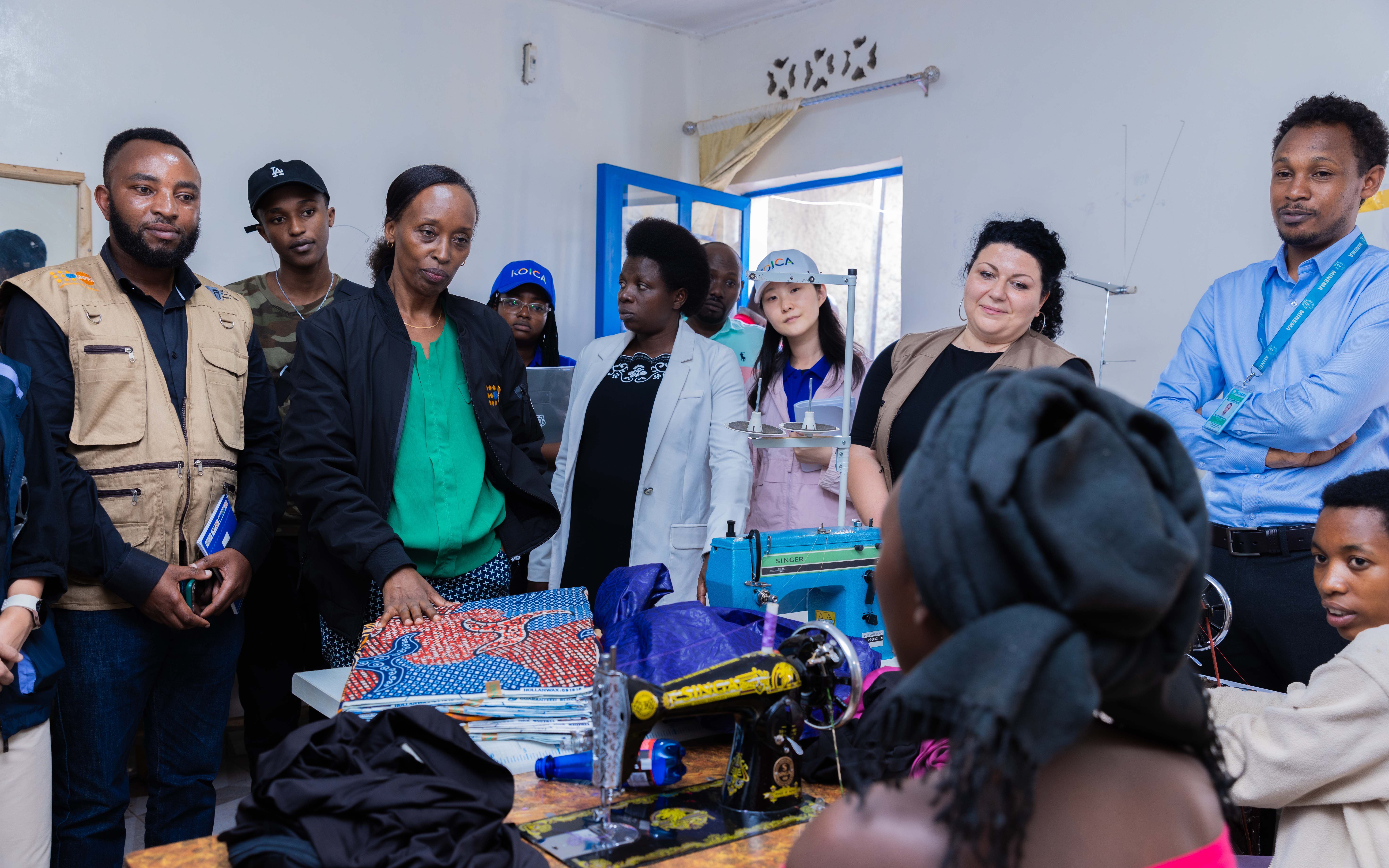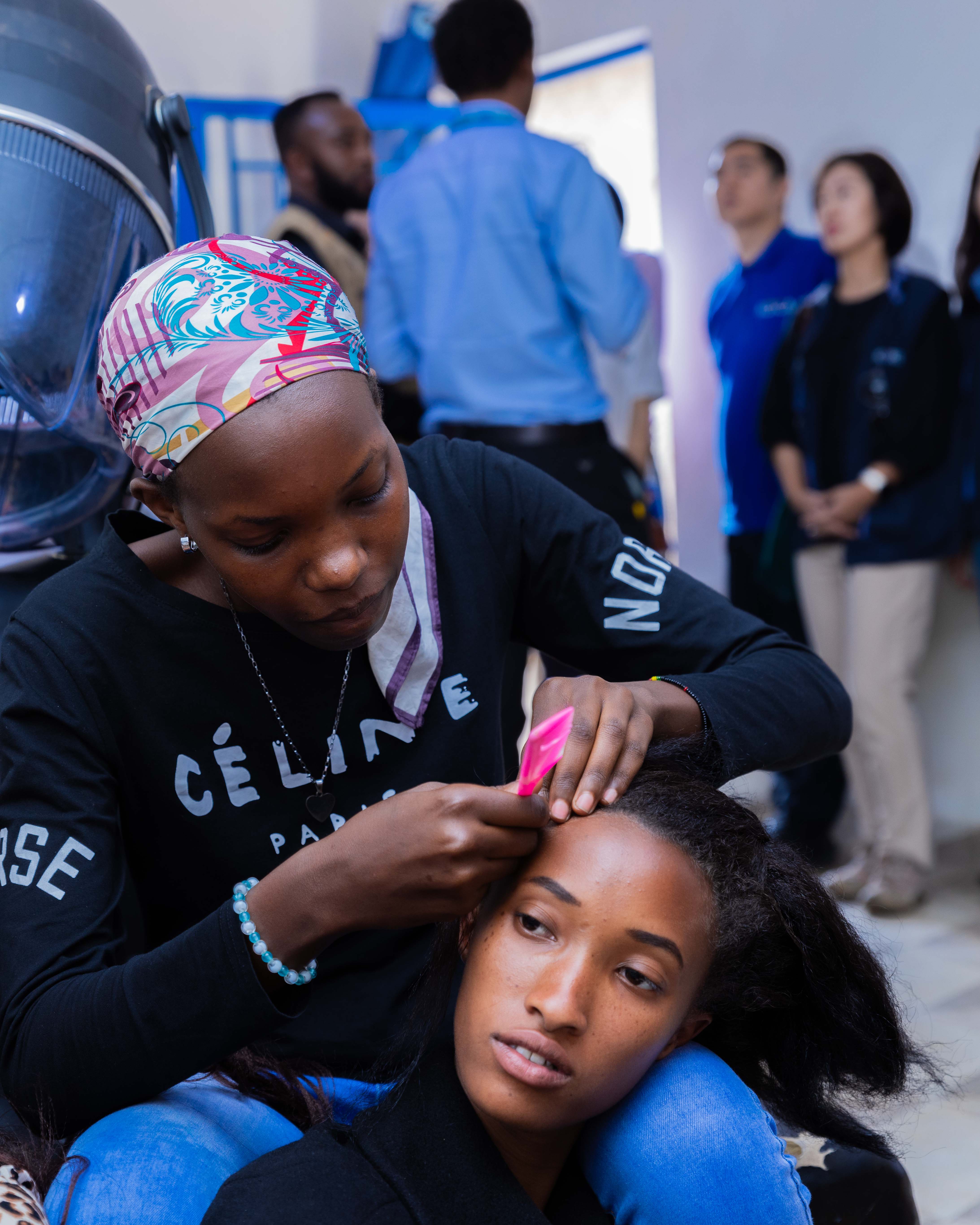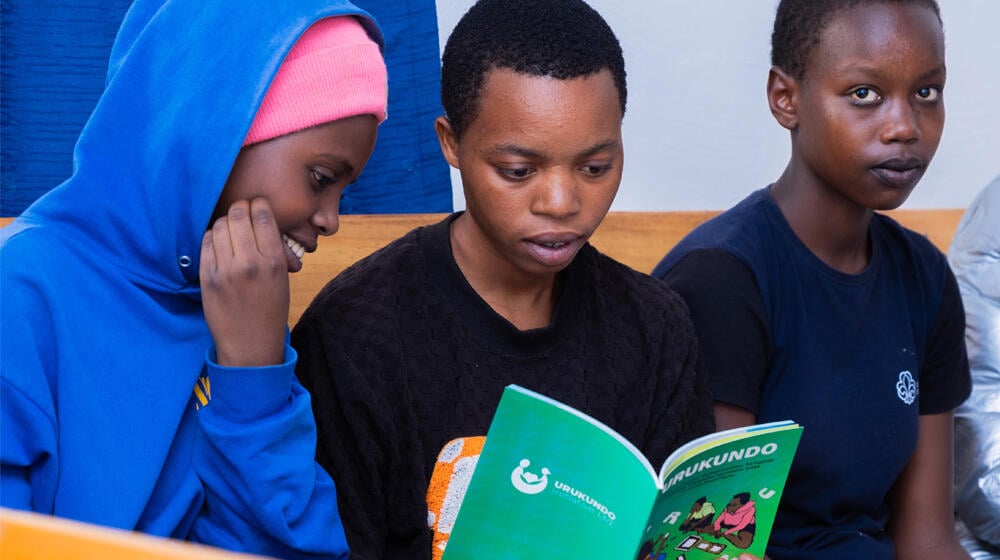Insufficient or limited access to comprehensive information on Sexual and Reproductive Health and Rights (SRHR) presents a critical concern, creating a scenario where young individuals encounter increased vulnerabilities. This inadequacy significantly hampers endeavours to reduce the risk of youth exposure to various threats, such as Sexually Transmitted Infections (STIs) including HIV, early and unintended pregnancies, unsafe abortions, and the looming spectre of gender-based violence (GBV).
Amidst challenges stemming from inadequate access to information, UNFPA Rwanda embarked on a project dubbed the 'Healthy and Empowered Youth Project.' This initiative, aimed at bridging critical knowledge and service gaps in sexual and reproductive health (SRH), as well as combat GBV among adolescents and youth in select regions and refugee camps in Rwanda.
Funded by the Government of the Republic of Korea through the Korea International Cooperation Agency (KOICA) began in July 2020 and ended June 30, 2023 and encompassed three districts – Rusizi, Karongi, Nyamasheke – and several refugee camps, namely: Kigeme, Kiziba, Mahama, Mugombwa, and Nyabiheke, along with their respective host communities.
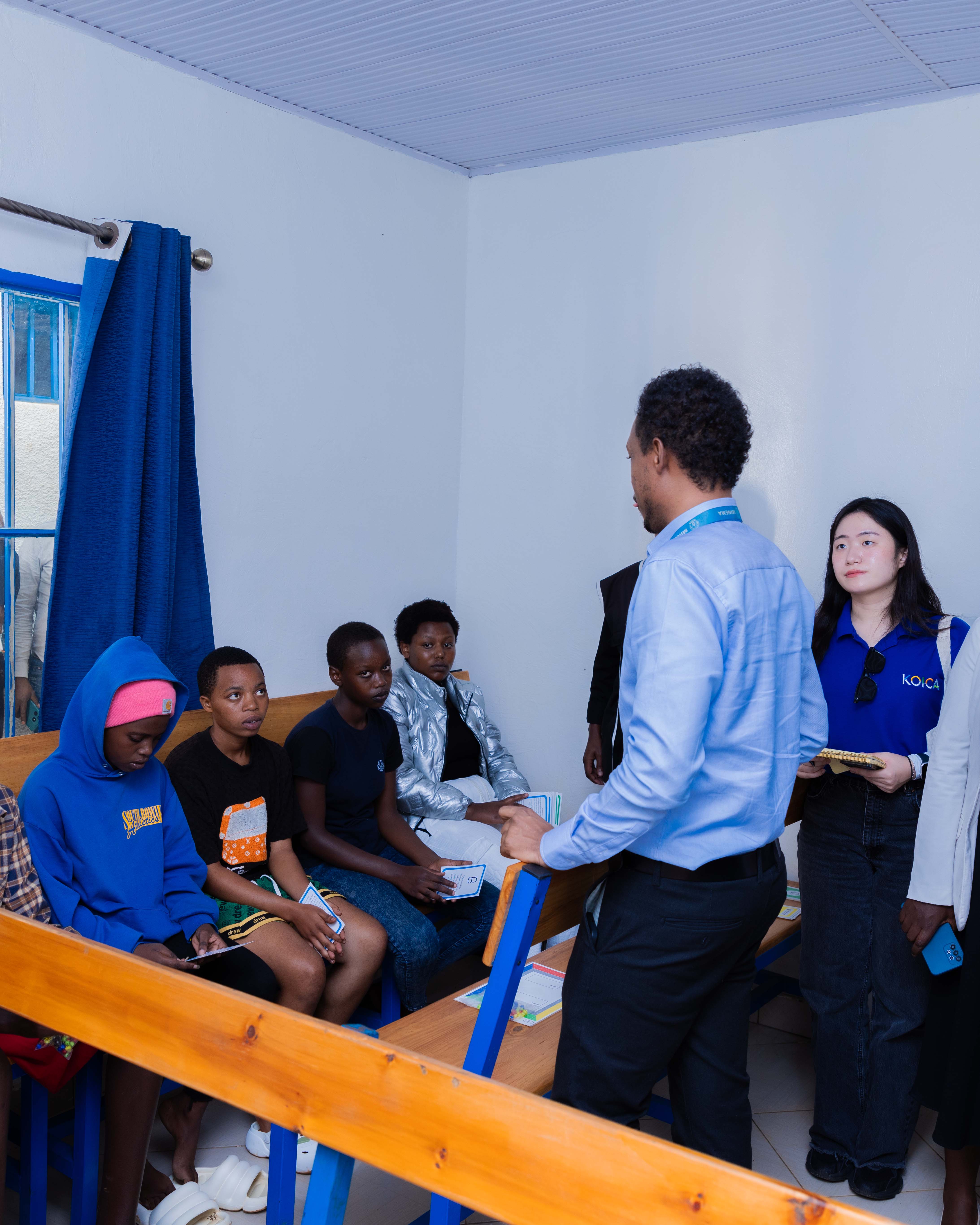
From January 29 to 31, officials from the government, funding partners, and implementing organisations conducted a field visit to Karongi district to assess the project's sustainability and witness its outcomes first hand. During a courtesy call, Valentine Mukase, the Mayor of Karongi district, expressed gratitude for the positive impact of the project.
"The project increased the demand for and supply of SRH and GBV services for adolescents and youth in our district. It also empowered the most vulnerable adolescents and young people to access education and socio-economic opportunities," Mukase stated.
“The overarching goal is to ensure that the positive results achieved over the three-year span are sustainable, creating lasting benefits for the targeted population,” she said.
Renata Tallarico, UNFPA Deputy Representative, reflected on the impact of the 'Healthy and Empowered Youth Project' over the past three years, emphasising its influence on the lives of over 1.8 million adolescents and youth aged 10-24.
“The project's accomplishments are diverse, ranging from empowering 296,200 young individuals with crucial information on SRH and GBV to equipping 846,983 youths with the skills and knowledge necessary for informed decisions and healthy living. It has provided safe spaces for in-school and out-of-school adolescents, facilitated uninterrupted access to SRH information, and ensured the utilisation of general Adolescent and Youth Sexual and Reproductive Health (AYSRH) services by thousands,” she said.
“Moreover, it has empowered vulnerable youths with economic opportunities, enhanced access to Youth-Friendly Services in refugee camps and established 27 youth corners in districts and 6 in refugee camps, including 3 Golden Youth Corners dedicated to providing quality youth-friendly services.”
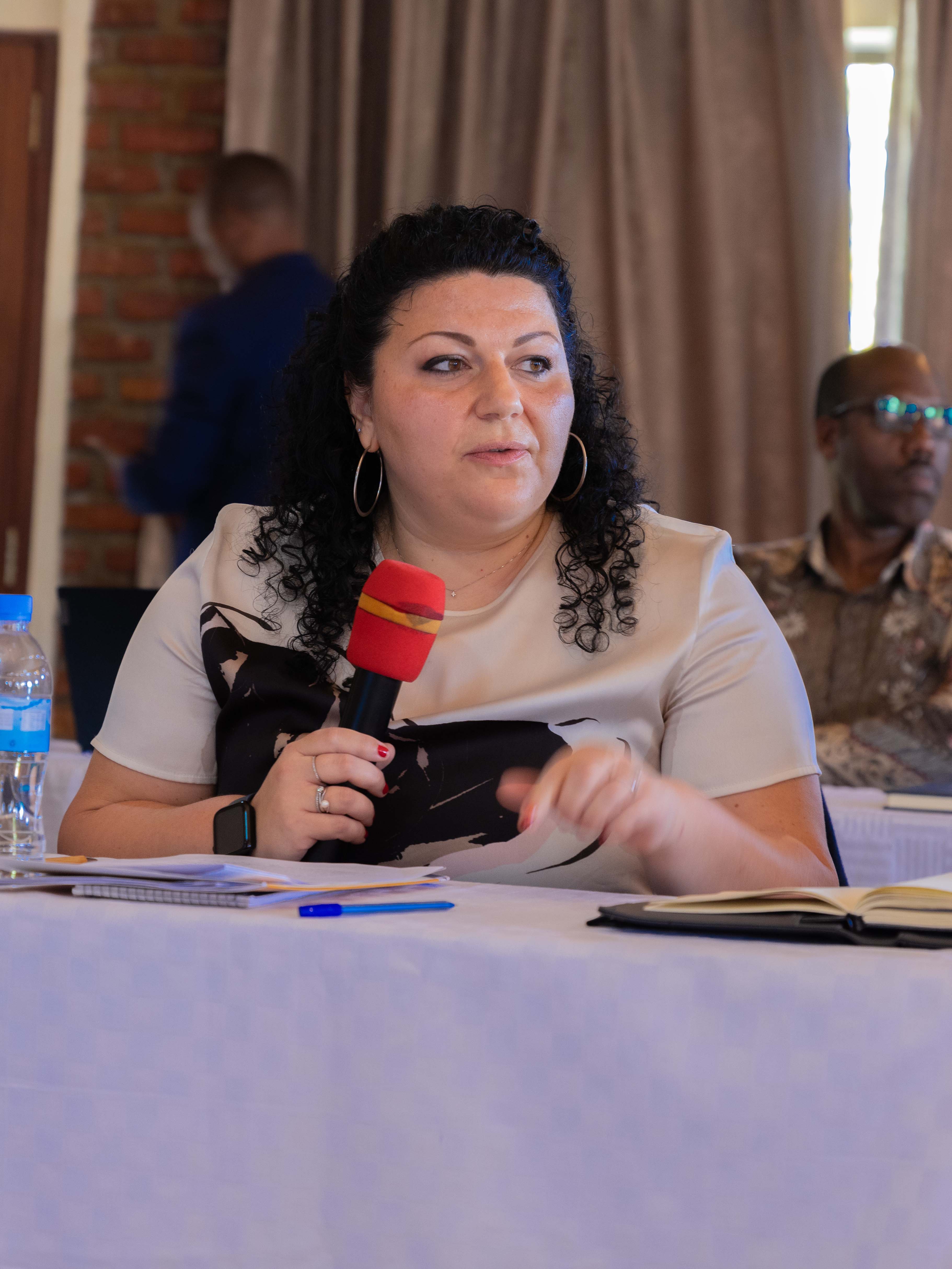
Chae Yeonjoo, representing the ambassador of Korea in Rwanda, commended the commitment of partners despite the challenges posed by the COVID-19 pandemic. She acknowledged that over 1.8 million youth and adolescents have benefited from “life-changing services.”
"In 2020 and 2021, despite the challenges posed by the COVID-19 pandemic on various social groups, young people in particular, we witnessed the unwavering commitment of our partners to mitigate the impact of COVID-19 on adolescents and youth," Yeonjoo remarked.
“The partnership with KOICA has not only focused on immediate health issues but also extended to capacity strengthening, enabling 7,130 healthcare providers, teachers, and youth-led organisations to contribute effectively.”
As part of the broader partnership, KOICA collaborated with the Government of Rwanda to support the scale-up of the Youth Connekt initiative. This initiative, designed to connect and empower young people, witnessed significant participation, with more than 5,000 youths engaging in various Innovation Accelerator (iAccelerator) calls to address adolescent sexual and reproductive health and mental health challenges,” she said.
Kim Jinhwa, KOICA Rwanda Country Director, emphasised the role of ICT in advancing rural development and education, stating: "Today, young people need skills and knowledge relevant to the current economy to enable them to become innovators, thinkers, and problem-solvers."
Jinhwa further highlighted the importance of breaking cultural barriers and empowering parents and communities with knowledge and skills to facilitate open discussions about sensitive sexual and reproductive health issues.
According to officials, the success stories of the project are rooted in the positive experiences of the youth who continue to utilise the services provided. “These young individuals not only gain valuable knowledge but also contribute to their communities by establishing businesses and making strides towards financial stability,” said Jinhwa.
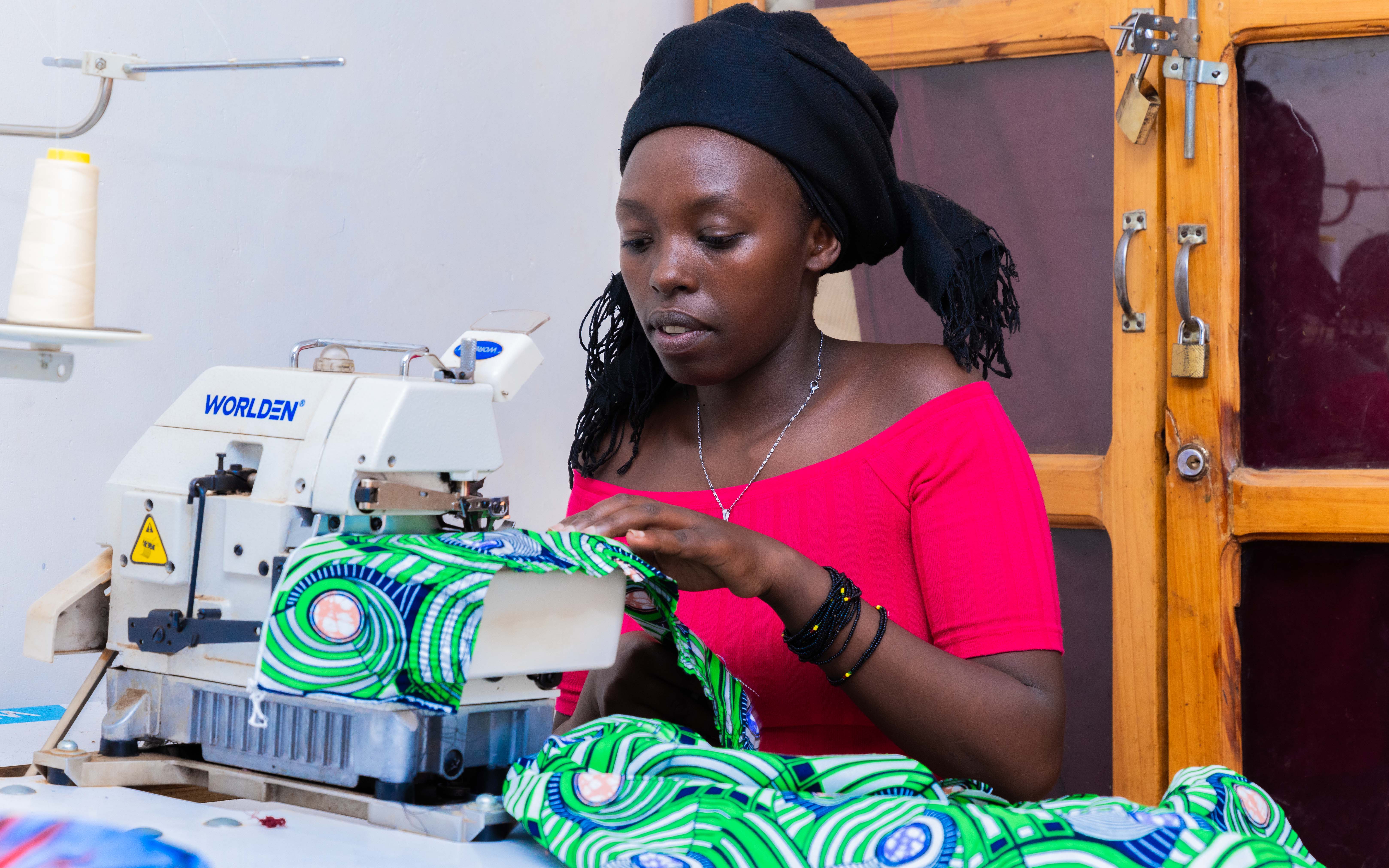
Innocent Dusabimana, the head of Rubengera Health Center, expressed the positive impact of the youth corner initiative, emphasising its contribution to the community. “There’s an increased engagement of youth since the establishment of the youth centre. We offer various valuable services, including educating youth about their bodies, providing medical assistance, offering access to high-speed internet, and delivering essential mental health counselling.”
According to him the youth centre has become a pivotal resource for adolescents, addressing crucial topics that many parents might not discuss and overcoming the limitations of privacy when seeking guidance from community health workers. “We really encourage continued participation, and we’re committed to creating an even more supportive environment for our youth.”
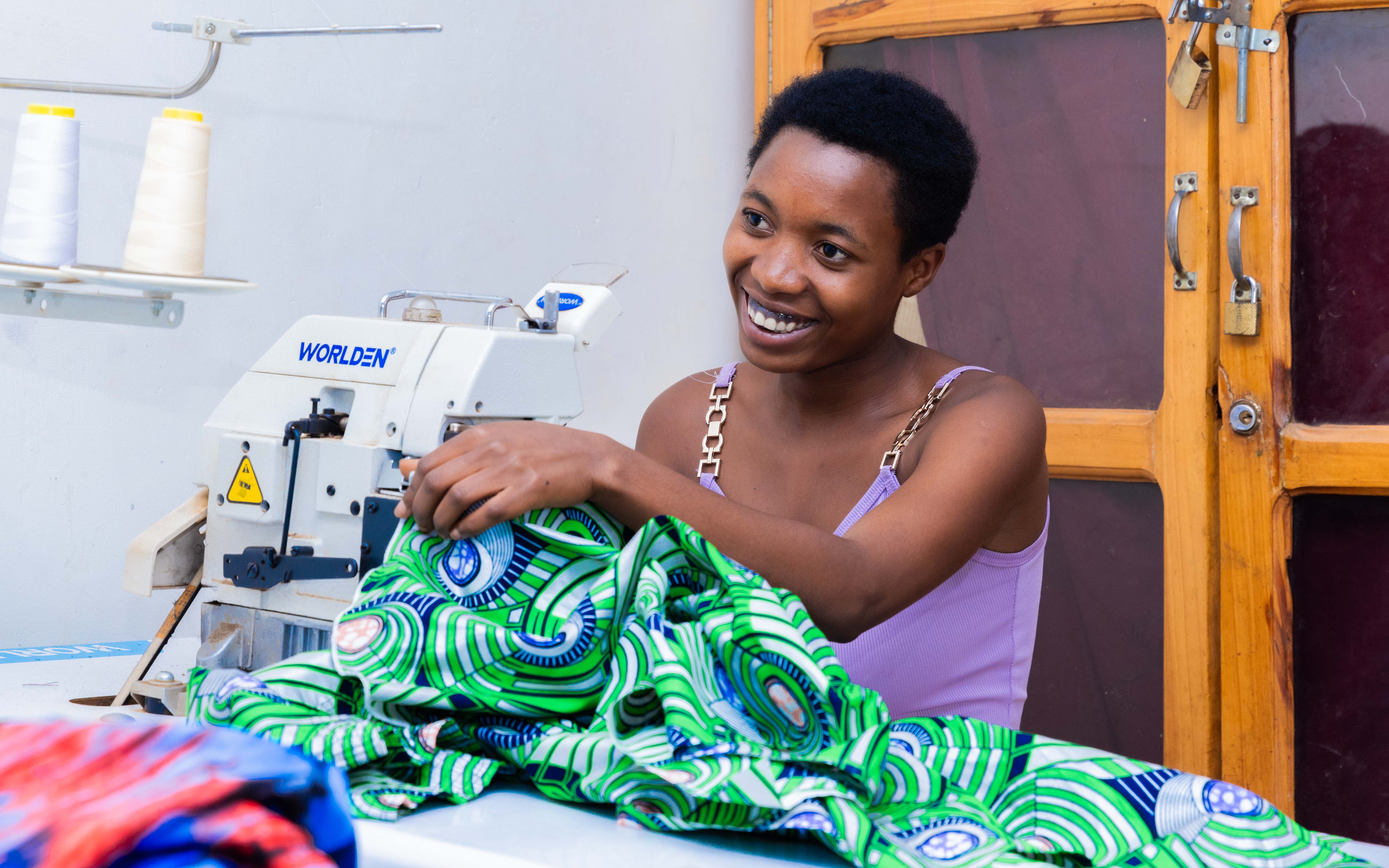
Rose Nyiranshimiyimana, a Rubengera resident and frequent visitor to the youth centre, expressed: “This has become a sanctuary for young women like me. They provide us with crucial information about sexual health and offer education and medical assistance in cases of gender-based violence (GBV). In situations where discussing issues like rape or physical violence in public lines was uncomfortable, causing some to refrain from seeking help altogether, the youth center has provided a solution. Moreover, they prioritise our privacy, which I believe is a key factor in why youth continue to seek assistance here.”
